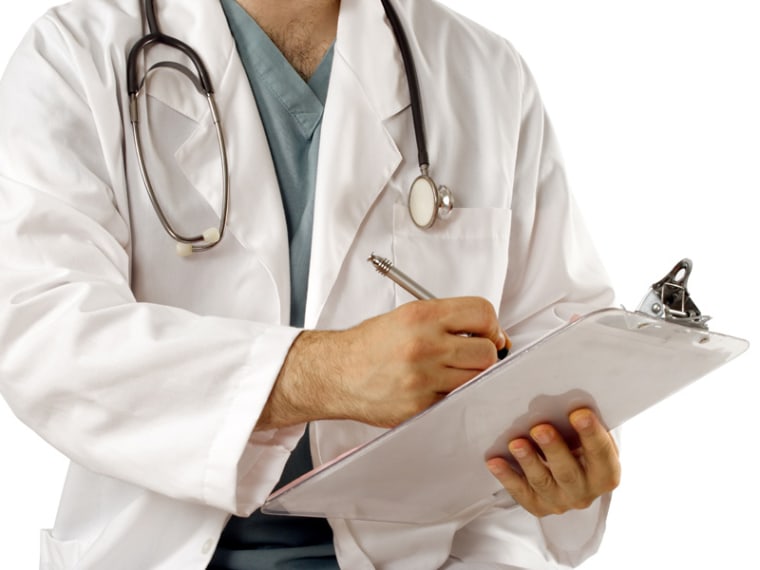Primary care physicians could save lives by asking patients nine simple questions, a new study suggests.
By asking a series of family-related questions as part of routine care, doctors are more likely to catch patients who have inherited a higher risk for developing certain cancers, heart disease and diabetes, Australian researchers note in a report published in the Annals of Family Medicine. Despite advances in DNA testing, knowing family medical history “remains the most relevant genetic risk tool,” the researchers from the University of Melbourne report.
“If we could identify people at risk for all of these diseases and do appropriate counseling and, in those with very high risk, genetic testing, it could make a difference in preventing bad outcomes,” said Dr. Patricia Ganz, director of cancer prevention and control research at UCLA's Jonsson Comprehensive Cancer Center. “This broadens the reach to not just the mother and father, but other close relatives — cousins, aunts and uncles — and that can tell us if something is running in a family.”
Although physicians are trained to take comprehensive histories from their patients, “[doctors] get lazy and don’t do it unless they see the value in it,” said Ganz, who was not involved in the Australian study.
Heart disease and stroke have a strong link to family. While some diabetes may be inherited, the disease doesn’t always follow a “simple pattern,” according to the American Diabetes Association. Some types of cancers, such as ovarian, run in families, but only 5 to 10 percent of all cancers are caused by gene mutations inherited from a parent, according to the American Cancer Society.
Still, if your doctor isn’t asking you these questions, you might want to offer up the information on your own.
1. Have any of your close relatives (parents, children siblings, also known as first-degree relatives) had heart disease before the age of 60?
Heart disease includes cardiovascular disease, heart attack, angina and bypass surgery.
2. Have any of your close relatives had diabetes?
Diabetes includes: non-insulin dependent type 2 diabetes, the most common form of the disease; type 1, which occurs in children and young adults; and gestational diabetes, which develops during pregnancy.
3. Do you have any close relatives who have had melanoma?
About one in every 10 patients diagnosed with melanoma has a family member with a history of the disease, according to the Skin Cancer Foundation.
4. Have any of your close relatives had colon cancer before the age of 55?
An estimated 1 in 5 people who develop colorectal or colon cancer have a family history of the disease, according to the American Cancer Society.
5. Do you have more than one relative on the same side of the family who has had colon cancer at any age?
Includes parents, children, brothers, sisters, grandparents, aunts, uncles, nieces, nephews and grandchildren.
6. Have any of your close male relatives had prostate cancer before the age of 60?
Prostate cancer is diagnosed in more than 230,000 U.S. men a year.
7. Have any of your close female relatives had ovarian cancer?
Ovarian cancer kills 14,000 women in the U.S. every year. In addition to family history, new research links obesity with increased risk.
8. Have any of your close relatives had breast cancer before the age of 50?
Breast cancer is the second-leading killer among U.S. women, after lung cancer.
9. Do you have more than one relative on the same side of your family who has had breast cancer at any age?
Includes parents, children, brothers, sisters, grandparents, aunts and uncles.
